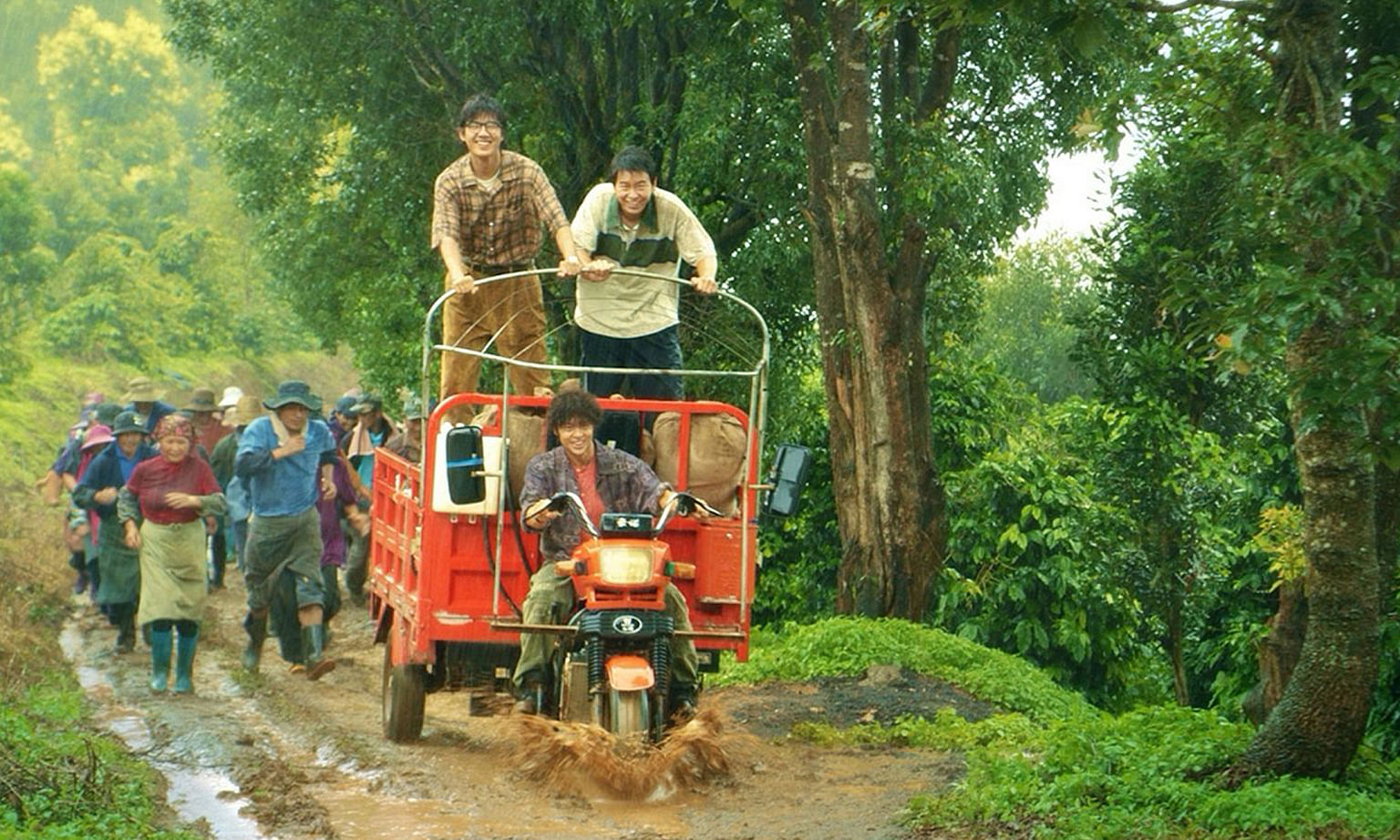THE SWORDSMAN
You cannot be blamed if you lose track of who's who in this South Korean martial arts flick that packs in as much historical texture as it does action.
In its compact 101-minute running time, a head-spinning array of supporting characters are introduced, including village healers, innkeepers, feudal lords and their families. That is woven into a time-jumping, flashback-driven plot that takes in Qing-versus-Ming dynastic struggles in China and its knock-on effects on Korea.
Keeping it all straight - or at least, making an attempt to do so - is Choi Jae-hoon, who makes his debut as a director of a feature film (though he might have a director credit for a previous unreleased picture, according to hancinema.net, a website which tracks Korean films).
That this movie was overseen by its own writer might explain the undisciplined plot, but that mistake can be forgiven because the end result is a fun, sincere ode to sword flicks of Asian cinema, in particular Japanese movies about wandering samurai (often with a disability which never seems to diminish their ability to fight) or lone warriors shielding a child from imperial malice.
The film opens with a flashback to a showdown at the royal palace involving the taciturn warrior Tae-yul (screen heart-throb Jang Hyuk). Its outcome forces him out of aristocratic circles and into a village where he lives in obscurity with his daughter Tae-ok (Kim Hyeon-soo), whom he keeps in the dark about his origins.
The loving child does what she can to slow down her father's encroaching blindness. Enter Kurutai (Indonesian actor Joe Taslim), a Manchu from China. Like a boss' son who lords over employees, the bully is related to the powerful Qing dynasty and makes a living enslaving Koreans.
Kurutai is cruel, but that does not mean he is a brute. Like a jaded gunslinger from the Old West, he is tired of fighting boys who think they have studied the blade and wants to test himself against a real master.
As the movie winds its way to the inevitable battle between the Manchu and the man from nowhere, Tae-yul keeps his steel slick with the blood of lesser henchmen. The duels are more elegant than brutal and nowhere as gory as, say, the Marvel superhero movie Logan (2017), which features the head-lopping Wolverine played by Hugh Jackman.
Standing in contrast to the realism in sword stunts and political intrigue is the cringe-inducing adolescent wackiness going on in the Manchu camp. Picture 1960s James Bond sex kittens, Japanese ninjas and villains sprawled on crushed velvet cushions. The cheesiness, however, adds to the film's charm.
COFFEE OR TEA?
This Chinese comedy is billed as the follow-up to the successful American Dreams In China (2013) because its director Peter Chan is back, but as the producer. Derek Hui, a relative newcomer to feature films, directs.
Structurally, the new movie resembles the older one: Three young men forge a friendship based on shared business goals, only to have the bonds tested by reality. The first movie was set in the 1980s, when Chinese students in major cities like Beijing were gripped by the craze for a Western education, particularly in the United States.
Coffee Or Tea? reverses the motivations by tapping the romantic ideals that city folk in China today hold about rural life in their country. It is a yearning expressed in the videos of former city dweller-turned-rustic-goddess Li Ziqi, who has gained millions of followers on YouTube and Chinese social media.
Actors Liu Haoran, Peng Yuchang and Yin Fang play three men whose fates become entwined in the hills of Yunnan Province, where life's clock runs slowly and tea is revered, both as a beverage and the area's sole source of income.

When the lads drag their village into the 21st century by introducing online shopping and coffee, chaos ensues, along with some learning and laughter.
As with other Chinese films released during China's Oct 1 National Day celebrations, there is some self-congratulation here over how the government has helped make farming an attractive enough vocation so young people choose to stay instead of migrating to the city.
That might be so, but the story makes the unfortunate creative choice of viewing Yunnanese farmers mostly as problems in search of a solution. Rural folk are infantilised, becoming either magical elfin creatures or sad bumpkins.
-
VIEW IT /THE SWORDSMAN
-
NC16, 101 minutes, now showing
3.5 stars
COFFEE OR TEA?
PG, 97 minutes, now showing
3 stars
THE SONG OF NAMES
NC16, 114 minutes
Not reviewed
It is an unfair, lazy portrayal that sits awkwardly atop a story that is otherwise a decent rags-to-riches tale that touches on the pang of yearning urban folks feel when watching a video of a woman irrigating a cucumber patch, using water from a wooden bucket carried on her shoulders.
THE SONG OF NAMES
Another film that is out this week but not reviewed is The Song Of Names, a drama starring Tim Roth and Clive Owen. The two characters first meet as children during World War II, when Dovidl, a refugee and violin prodigy, is adopted into Martin's family.
Later, as a young man, Dovidl vanishes before a performance, traumatising his family. Years later, as an adult, Martin (Roth) finds a clue that might lead him to Dovidl.

